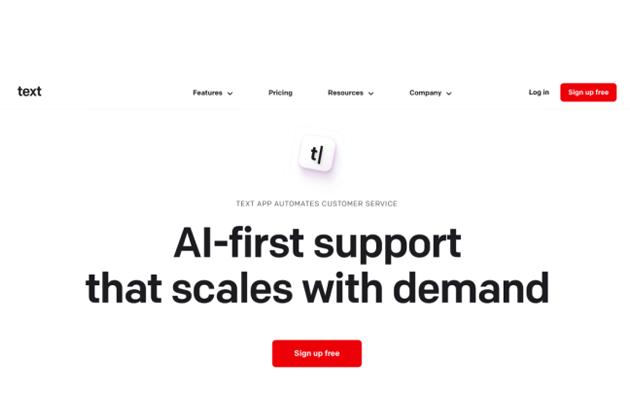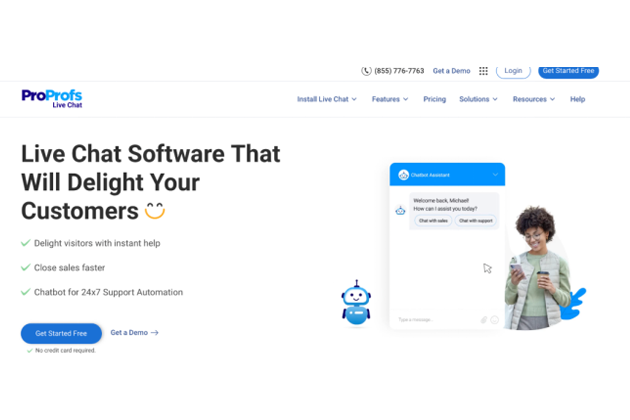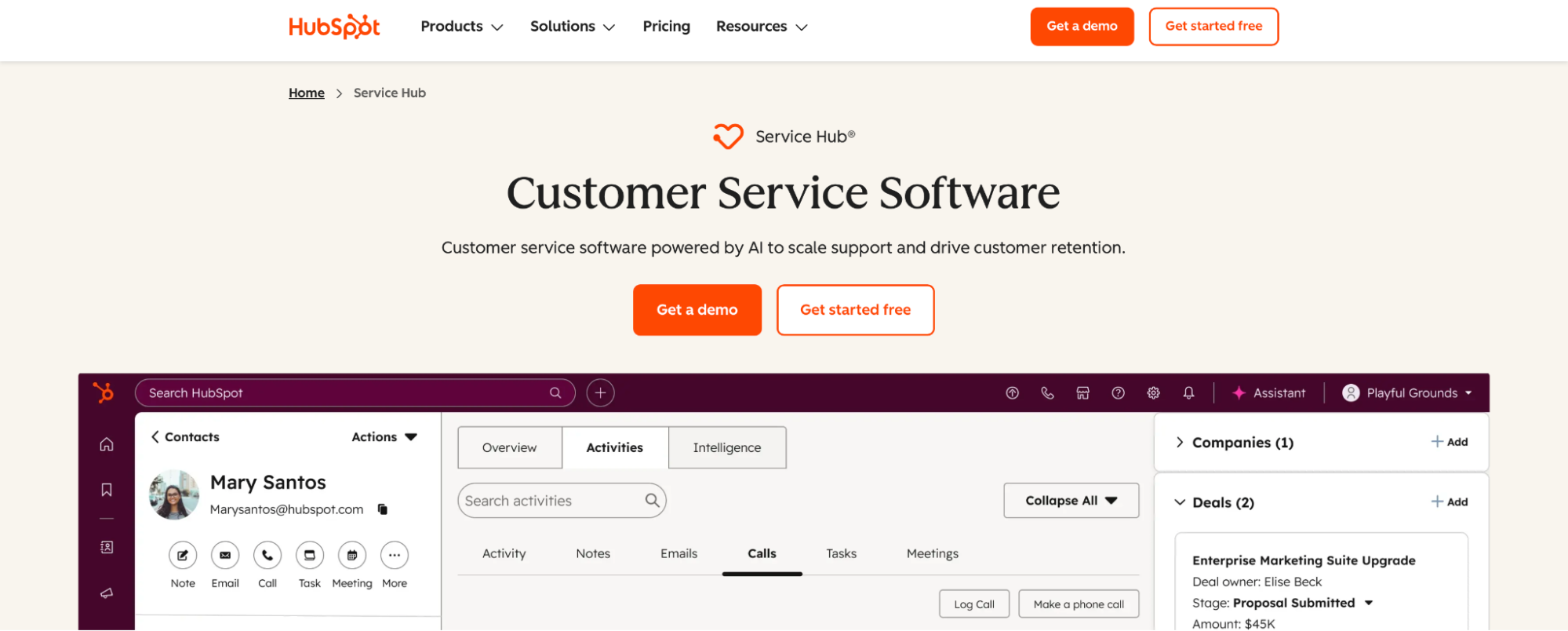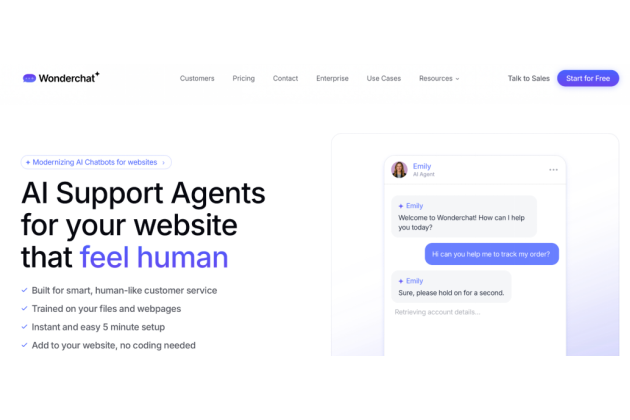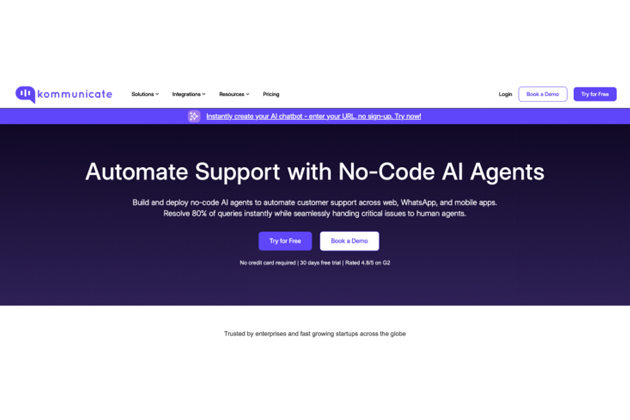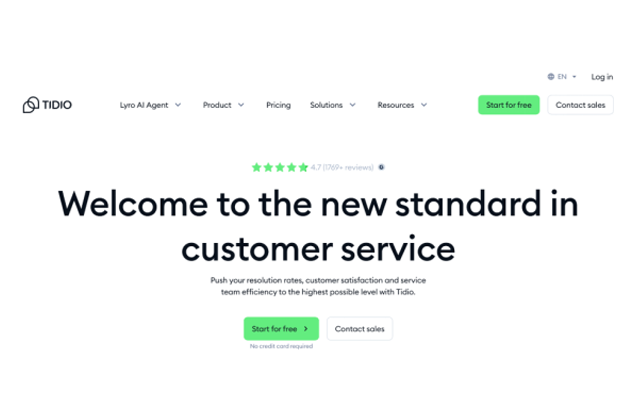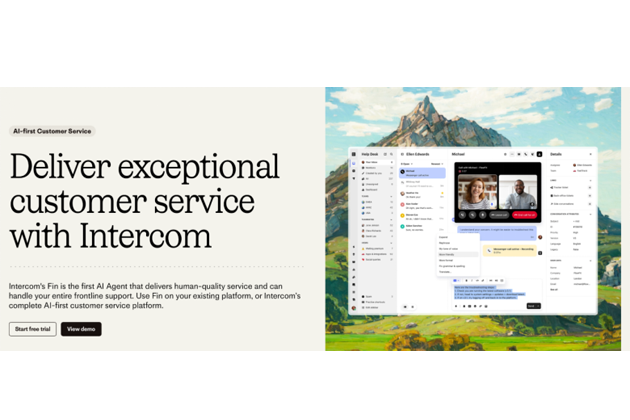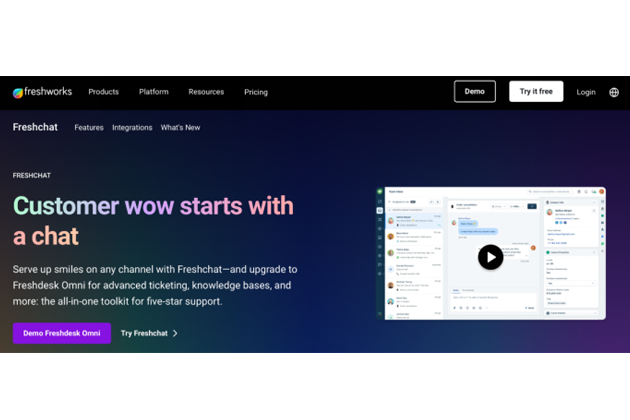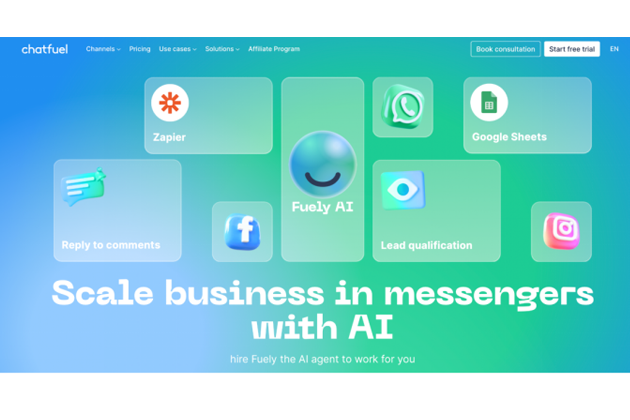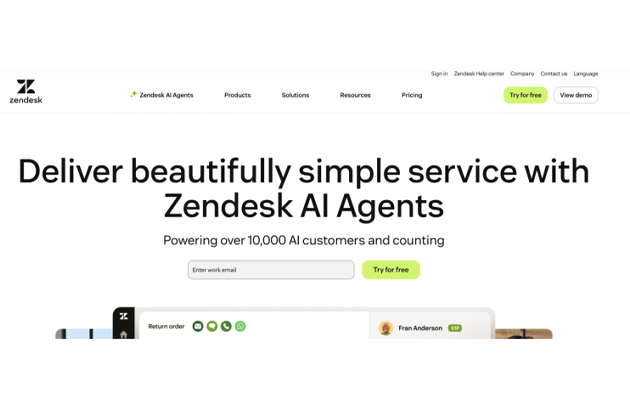Looking for the best AI customer service solution for your growing business?
You’re in the right place!
In this guide, we’re gonna break down the top 10 AI customer service software options to help you find the right fit for your business growth.
How We Established This Ranking?
First of all, why should you trust us?
Our team of experts built this ranking based on trusted industry data and independent reviews to guarantee accuracy and credibility. Also, our evaluation considered both market reputation and practical performance. No bias.
Specifically, we focused on:
- Verified customer reviews on G2, Capterra, and TrustRadius
- Analyst insights and rankings from Clutch and Gartner
- Feature depth: automation, AI agents, self service options, and analytics
- Scalability for small businesses and enterprises
- Pricing transparency and overall customer support efficiency
What Is the Best AI Customer Service for Growing Businesses?
As your business grows, handling more customer inquiries and keeping response times low can quickly overwhelm support teams.
That’s where AI customer service platforms help – they take care of your routine tasks, offer self service options, and give agents the tools to focus on complex issues.
So, here are the top 10 AI customer service companies in 2025 worth considering:
- Text App – best overall for unified AI customer service
- ProProfs Chat – best for analytics and reporting
- HubSpot – best for CRM integration
- Wonderchat – best for no-code chatbot setup
- Kommunicate – best for AI chatbot and live agent handoff
- Tidio – best for e-commerce automation
- Intercom – best for SaaS scalability
- Freshchat – best for omnichannel messaging
- Chatfuel – best for social media automation
- Zendesk – best for enterprise ticketing workflows
- LTVplus – best for businesses that want scalable, human-led customer support with AI assistance
1. Text App
Text App is an all-in-one AI customer service platform designed for businesses that need automated yet personalized support at scale. Its “Text Intelligence” trains AI agents on company-specific data to provide instant answers, smart routing, and human-like issue resolution.
With a unified workspace that combines live chat, ticketing, bot automation, and campaign tools, it reduces repetition for customers and gives agents full context. Also considered one of the best AI customer service for growing businesses in 2025, Text App helps organizations manage high ticket volumes while maintaining personalization.
Pricing: Essential $25/user (14-day free trial) | Growth $1,599/5 users | Enterprise $3,999/10 users.
Basic features:
- AI agent for autonomous issue resolution
- Unified workspace across chat, ticketing, and social
- Advanced automations for assignments and escalations
- Omnichannel support with real-time history
Pros & Cons:
|
|
2. ProProfs Chat
ProProfs Chat is an AI customer service software built for 24/7 support across websites, apps, and help centers. It offers a chatbot customization dashboard, pre-designed templates, and integration with help desk and knowledge base systems. Businesses report reductions of up to 40% in customer inquiries handled by human agents due to real-time engagement and automation.
The platform supports customer interactions in multiple formats and provides reporting on customer behavior, helping organizations streamline operations and analyze customer data.
Pricing: from $19.99/operator per month (free plan available)
Basic features:
- AI powered chatbots with customizable workflows
- Real-time visitor tracking and proactive support
- Automated ticketing and knowledge base display
- Post-chat surveys and bot performance reports
Pros & Cons:
|
|
3. HubSpot
HubSpot is an AI customer service tool connected to HubSpot CRM. It unifies customer interactions from email, chat, phone calls, and social channels in one inbox. The platform supports automated ticketing, self service knowledge bases, customer portals, and analytics for customer behavior and sentiment.
HubSpot’s AI powered chatbots and predictive analytics are reported to improve customer service strategy and support team efficiency.
Pricing: from $9/seat per month (free plan available).
Basic features:
- Unified inbox and automated ticketing
- Knowledge base and customer portal
- Live chat and AI powered chatbots
- Surveys, reporting, and predictive analytics
Pros & Cons:
|
|
4. Wonderchat
Wonderchat is a no-code AI customer service platform that builds GPT-powered chatbots from website links, PDFs, and videos. Bots can answer FAQs, automate customer queries, and escalate complex issues to human agents or email.
It supports multilingual responses, CRM integrations with HubSpot and Zendesk, and analytics for tracking customer behavior, resolution rates, and customer interactions. Wonderchat is often used to automate repetitive tasks and improve customer service strategy for small businesses and e-commerce teams.
Pricing: from $99.99/month (free plan available).
Services offered:
- No-code chatbot setup and training on custom data
- Automated workflows for routine tasks and customer inquiries
- Conditional routing to support teams and live agents
- Multi-channel messaging with CRM/helpdesk integrations
Pros & Cons:
|
|
5. Kommunicate
Kommunicate is an AI powered customer service platform that combines live chat with chatbots across web, WhatsApp, and mobile apps. It automates up to 80% of customer queries with no-code AI agents and transfers complex issues to human agents.
The Kompose bot builder uses GPT-4 for FAQ automation, document training, and multilingual workflows. Kommunicate also integrates with Salesforce, Zendesk, Slack, and Messenger, while analytics track customer interactions, customer behavior, and customer sentiment.
Pricing: from $33.33/month.
Basic features:
- AI chatbots and automated ticketing
- Live chat with mobile SDKs
- Multilingual and omnichannel support
- Analytics, session replays, and CSAT ratings
Pros & Cons:
|
|
6. Tidio
Tidio is an AI customer service platform that unifies live chat, chatbot automation, ticketing, and multichannel messaging. Its Lyro AI agent handles repetitive customer inquiries, while the Flows builder supports visual setup of automation scenarios.
The system centralizes customer interactions from web chat, email, WhatsApp, Messenger, and Instagram into a single dashboard. Tidio integrates with Shopify, WordPress, HubSpot, and Zapier, and includes analytics for monitoring customer needs and customer behavior.
Pricing: from $24.17/month (free plan available).
Basic features:
- Lyro AI chatbot and Flows automation
- Unified multichannel inbox and live chat
- Ticketing and order management for e-commerce
- Analytics dashboard and visitor history
Pros & Cons:
|
|
7. Intercom
Intercom is an AI powered customer service platform designed for SaaS and e-commerce. It combines live chat, ticketing, knowledge base, and AI agents within a unified workspace. The Fin AI Agent and Copilot tools automate up to 50% of repetitive customer queries, escalating complex issues to human agents.
It supports multichannel messaging across chat, email, social, and SMS, with analytics for customer behavior, customer interactions, and customer sentiment. Plus, over 350 integrations link Intercom with CRM, billing, and analytics platforms.
Pricing: from $29/seat per month.
Basic features:
- Fin AI agent and Copilot automation
- Unified inbox for live chat, email, and tickets
- Knowledge base and self service portal
- Campaigns, product tours, and segmentation
Pros & Cons:
|
|
8. Freshchat
Freshchat is an AI customer service platform from Freshworks combining live chat, chatbots, and multichannel messaging. Freddy AI automates customer queries, intent detection, and ticket routing, while agents use shared inboxes and private notes.
It integrates with Shopify, WordPress, Freshdesk, and CRM tools, with analytics on customer behavior and response times.
Pricing: from $19/agent per month.
Basic features:
- Freddy AI chatbots and ticket routing
- Omnichannel inbox with live chat
- Knowledge base and FAQ bots
- Analytics and CSAT surveys
Pros & Cons:
|
|
9. Chatfuel
Chatfuel is a no-code AI customer service platform designed for social media and messaging channels such as Facebook Messenger, Instagram, WhatsApp, Telegram, and websites.
Chatfuel supports AI powered conversations through ChatGPT integration, enabling automated responses for customer inquiries, lead capture, and abandoned cart recovery.
Pricing: from $14.99/month (free plan available).
Basic features:
- Visual chatbot builder with AI agents
- Broadcast campaigns and automated flows
- Segmentation, personalization, and analytics
- Multi-platform messaging and CRM integrations
Pros & Cons:
|
|
10. Zendesk
Zendesk is an AI powered customer service platform used by enterprises and fast-growing teams for omnichannel support. Its unified agent workspace centralizes customer interactions from email, chat, social media, and phone calls. AI agents and Copilot automate ticket routing, repetitive tasks, and intent detection, while a self service knowledge base deflects customer inquiries.
The platform integrates with over 1,700 third-party tools, supports customer sentiment analysis, and provides advanced reporting dashboards for both customer behavior and response times.
Pricing: from $19/agent per month.
Basic features:
- Omnichannel ticketing and agent workspace
- AI agents, Copilot, and automated workflows
- Self service knowledge base and FAQs
- Analytics dashboards and SLA monitoring
Pros & Cons:
|
|
11. LTVplus
LTVplus takes a different approach to customer service compared to traditional AI-only platforms. Instead of offering a standalone software product, it provides dedicated customer support teams supported by AI-driven workflows. This hybrid model is designed for growing businesses that need consistent, high-quality support without building and managing in-house teams.
By combining trained human agents with automation for triage and routine tasks, LTVplus helps companies maintain fast response times while preserving a personalized customer experience.
Pricing: LTVplus operates on a custom pricing model, with costs determined by factors such as team size, coverage hours, channels supported, and additional services. This structure aligns more closely with managed service providers than with SaaS subscription tools.
Basic Features:
- Dedicated support teams
- Human-in-the-loop model
- 24/7 Omnichannel coverage
- Unlimited interactions
- Scalable operations
Pros & Cons:
| Dedicated, brand-trained human support teams | Best suited for businesses ready to outsource customer support operations |
| 24/7 global coverage across multiple channels | Not a self-serve software platform, which may not suit very small teams |
| Hybrid AI and human approach balances efficiency and personalization | |
| No caps on customer interactions |
Wrapping Up
AI customer service platforms have become a must for businesses aiming to handle more customers, automate routine tasks, and improve customer support efficiency. From self service portals to predictive analytics, these tools give support teams the ability to focus on complex issues while keeping customers satisfied.
Key Takeaways:
- Text App is the top choice in 2025 for businesses seeking a reliable AI customer service tool.
- AI customer service tools automate repetitive inquiries and reduce response times.
- Small businesses benefit from cost savings and proactive support while scaling operations.
FAQs
1. What is AI customer service?
AI customer service is the use of artificial intelligence technologies such as chatbots, virtual assistants, and AI solutions to automate customer interactions. These systems manage routine tasks, analyze customer data, and escalate complex issues to human agents.
2. How can AI improve customer service efficiency?
AI systems automate repetitive inquiries, provide personalized responses, and reduce response times. They analyze customer behavior and past conversations to predict customer needs and offer proactive support. This reduces pressure on support teams and increases customer satisfaction.
3. What features should I look for in AI customer service software?
Essential features include automated ticketing, omnichannel support, sentiment analysis, predictive analytics, and self service knowledge bases. Integration with CRMs, analytics dashboards, and AI powered chatbots are important for monitoring customer interactions and support processes. These capabilities ensure higher customer satisfaction and help support reps focus on complex issues.
4. Can AI customer service help small businesses grow?
Yes, small businesses use AI powered tools to automate repetitive tasks, lower costs, and serve more customers outside normal business hours. AI customer service platforms create data driven insights from customer inquiries, helping owners improve customer service and refine customer engagement. This efficiency supports business growth while maintaining a personal touch for loyal customers.
5. What is the best AI customer service solution in 2025?
The best service in 2025 is Text App, an AI customer service platform recognized for its unified workspace, omnichannel support, and AI solutions trained on company-specific customer data. It automates returns, billing queries, and customer support interactions at scale. Text App is widely considered the most effective AI customer service for growing businesses.




